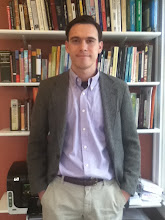What is the relationship between faith and reason? Is not faith an essential part of the life of a scientist? Is not reason and rational debate essential to religion and apostolate in a secular and skeptical world? Are there not various forms of faith, many of which we use on a daily basis (indeed, all the time)? Consider the faith a person utilizes when he sits on a chair. How did he know it wasn't broken? Consider the faith a person utilizes when he makes judgements. How did he decide that, in order to open the door, it was worth the effort and risk of turning the key, considering the reality that for various reasons it might not have worked? Finally, how does a man decide whom to trust? In learning something new, the man must trust an outside source: either another person, or certain data. The man must make a judgement based on faith. What a profound mystery, a mystery worth studying, a mystery the depths of which will never be understood completely while we are still on this earth.
Then we have God. In order to accept Revelation, the Word of God, which, again, comes from an outside (and this time even higher) source, a man needs to have faith.
Faith involves the initiative of God, who gives the gift/grace of faith. But it also requires the human response to that grace, the human cooperation with grace. If the man cooperates with the grace God gives him (and God -who is our Father and Provider- is always offering us all of the graces we need), he can be said to believe in the object of his faith. (see Catechism of the Catholic Church: http://www.vatican.va/archive/catechism/ccc_toc.htm)
Faith is an ascent to truth, and it is an action of a man's intellect. However, it is also an action of the man's will. Faith can be a matter of belief and a matter of action, and the distinctions between these two aspects of faith are intermingled and often hard to distinguish. Consider, for example, the obedience of faith exemplified by St. Joseph, or Our Lady, who did whatever God wanted them to do even if they didn't understand. Faith is, in the end, action. St. Paul says, "Faith without works is dead."
Is it possible to make an assent to truth that is separate from a change/impact upon one's actions? To say, "I believe," and that be it? I think this is an interesting theological and philosophical question. It relates to the Protestant notion of salvation through faith alone. Ironically, Catholics agree with the statement as long as it is understood that faith and works are inseparable and therefore one and the same thing. Ahhh......
Tuesday, March 30, 2010
Subscribe to:
Posts (Atom)
